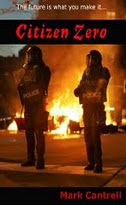Slavery is not an Olympian ideal
It’s a small price to pay for Olympic glory – 14 pence an hour – but cutting costs and boosting profits is what business is all about. Some people, however, might well consider it slavery; certainly, it isn’t in keeping with the expectations of the Olympian spirit of fair play and sportsmanship.
That’s why journalists are being asked to look behind the glossy PR façade of the London 2012 Olympics to reveal the dark underbelly of exploitation and poverty faced by workers in the games’ supply chain.
A campaign by the organisations Labour Behind the Label, the UK’s Trades Union Congress (TUC) and the National Union of Journalists (NUJ) wants to encourage the media to shine the spotlight on the conditions faced by workers – predominantly women – who make the sportswear and Olympics-branded merchandise.
The Playfair 2012 campaign is calling on the organisers of the London 2012 Games and the Olympics organisers to ensure that workers’ rights are respected and that the Games will live up to the ideals of the Olympic Charter 2007. The charter requires that “Olympism seeks to create a way of life based on the joy of effort, the educational value of good example and respect for universal ethical principles”.
It is hoped that any media attention focused on the murkier side of life behind the Olympics edifice will raise public awareness and force companies and the Games organisers to ensure that exploitation is not allowed to continue and therefore live up to that charter ideal.
London 2012, as with all Olympic events, is a multi-million pound business opportunity for sportswear brands and other business looking to leap on the marketing band-wagon for its potential sales value. By shedding light on the conditions of workers in the supply chain, the campaigners hope that abuses in pay and conditions can be driven out.
“In spite of more than 20 years of codes of conduct adopted by most major sportswear brands, workers still face bullying and harassment, poverty wages, excessive, undocumented and unpaid overtime, and threats to health and safety,” said Sam Maher, an Outreach Co-ordinator with Labour Behind the Label. “It is high time the Olympics spirit of fair play is extended to the millions of people employed in the global supply chains producing kit and merchandise for the games.”
In one example, leading up to the Beijing Games in 2008, Play Fair – the international arm of the Playfair 2012 campaign – found that workers producing Olympic merchandise were earning 14 pence an hour and working 15 hours a day, seven days a week. The workforce included children as young as 12. It is not at all stretching things to suggest that such conditions amount to slavery rather than employment.
As part of the campaign to encourage journalists to look into and reveal such dark places behind the PR façade, the campaigners will be holding a seminar with the media on Tuesday, 8 June, at the TUC headquarters in London, where they can hear from – and question – campaigners and trade unionists involved in resisting the exploitation.
Among them will be Lilis Mahmudah, an NED member of the Serikat Pekerja Nasional Textile & Garment Trade Union in Indonesia, as well as Michelle Stanistreet, the Deputy General Secretary of the UK’s NUJ, and Sharon Sukhram, the TUC’s Playfair 2012 campaign co-ordinator.
Mahmudah is currently engaged in negotiations with major sportswear brands to push for decent working conditions and bring an end to the exploitation that workers face through poverty pay, forced overtime and insecure short-term contracts. At the seminar, Mahmudah will explain just how bad the conditions are for workers in the sportswear industry.
“The NUJ s delighted to be supporting the Playfair 2012 initiative and to throw our weight behind this campaign to ensure the London Olympics provides decent work and conditions for all those workers who make the Games possible,” Stanistreet said. “As journalists we are committed to uncovering the reality that lies behind the hype surrounding the Games. The Olympics is a multi-million dollar industry yet the workers involved receive poverty pay and work in degrading conditions.”
Brendan Barber, General Secretary of the TUC, said: “It’s time for the organisers of the London Games, the sportswear industry and the International Olympic Committee (IOC) to take responsibility for the working conditions in the global supply chains producing these goods. We are encouraging journalists to delve beyond the PR spin and reveal the reality for workers employed in Olympics supply chains. Acting together we have the power to bring about change and demand that London 2012 is the first ethical Olympics – providing decent work and dignity for all.”
MC
Category: NEWS



























0 comments:
Post a Comment